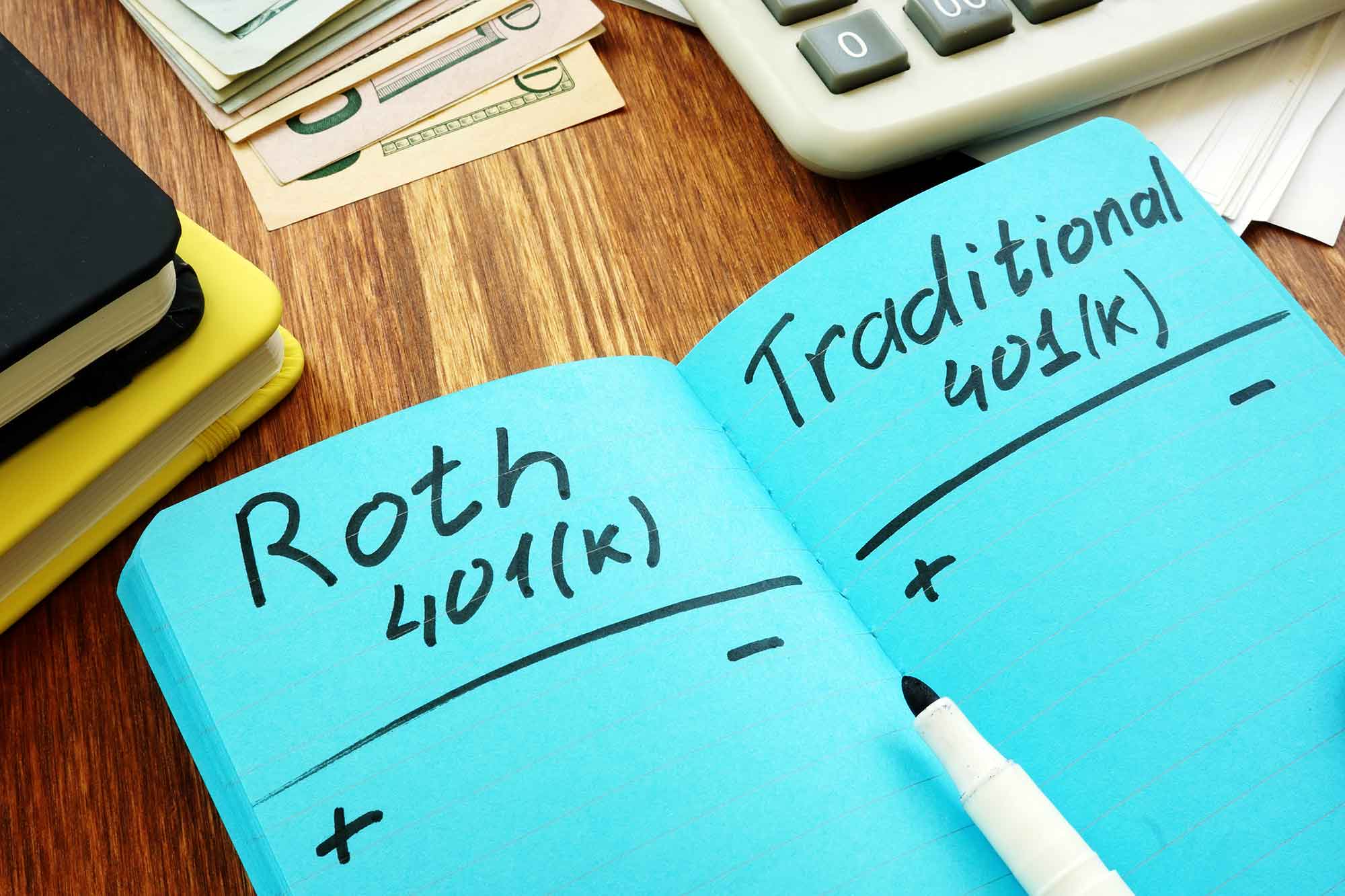Table of Contents
Saving for retirement seems easy when your employer offers access to at least one retirement plan. But when two 401(k)s come into play, which do you pick?
How does a traditional 401(k) compare to a Roth 401(k)?
If you’re concerned about how to manage your retirement savings, you’re not alone. With so many options these days, it’s only normal to think twice before making a final decision.
Traditional 401(k) plans are the most accessible options when it comes to setting up funds for retirement. But Roth 401(k)s are becoming more popular each year.
So, which one should you invest in for retirement?
Traditional 401(k) and Roth 401(k) similarities
While the two 401(k) plans have different characteristics, they do share a few similarities.
1. They’re both set up by the employer
Both traditional 401(k) and Roth 401(k) are set up by the employer. In case of self-employment, the owner of a sole proprietorship is also allowed to set up the 2 types of 401(k) accounts.
2. Employers can match employee contributions
Because of the tax advantages involved for both parties, employers can opt to match employee contributions.
3. Same contribution limits
Whether you opt for a traditional 401(k) or a Roth 401(k), employee contribution limits stay the same: $18K /year for employees under 50, $24K /year for employees 50 or above.
4. 401(k) plans are protected
Good news: The Supreme Court ruled that both 401(k) accounts are protected from creditors and are under federal bankruptcy law. However, the IRS can still have access to your retirement funds, so stay out of trouble!
5. Retirement funds grow tax-free
Although tax benefits are what mainly differentiates a traditional 401(k) from a Roth 401(k), capital gains aren’t subject to any annual taxes.
Traditional 401(k) and Roth 401(k) differences
1. Tax brackets
Despite the two retirement plans being characterized by many similarities, this one difference has a huge impact on employees making a decision: the timing of taxes.
If you opt for a traditional 401(k), your contributions are pre-taxed.
This means you can deposit your money tax free, but your withdrawals will be taxed accordingly, 20, 30 or 40 years from now, when you retire.
Things are different with a Roth 401(k). Deposits are subject to tax as you deposit, but you’ll withdraw your money tax free as a retiree.
So, which option is best?
Basically, the main question to ask yourself is this: will I pay more taxes, or less, when I retire?
While coin flipping is not the way to decide your financial future, the chances you’ll know for sure how taxes will fluctuate over the next 30 years are significantly low.
Objectively speaking, young adults just starting out and low income earners are most likely in the lower tax brackets.
This means a Roth 401(k) is the more advantageous option, since you’d pay low taxes upon deposit, but withdraw your money tax free when you retire (and after your nest egg has also grown tax free for many, many consecutive years).
High earners, however, pay more taxes. It makes more sense to opt for a traditional 401(k).
You won’t pay any taxes upon deposit, and at the same time, by reducing the total income subject to taxes, you could even place yourself in a lower tax bracket.
2. Early distributions
In both cases, distributions can begin at age 59 and 1/2.
Withdraw money even a day earlier and you’ll pay tax penalties.
However, stuff happens, and sometimes unqualified withdrawals are a must.
With a traditional 401(k), early distributions are subject to a 10% penalty, plus taxes (the ones mentioned earlier).
In case of a Roth 401(k), you’d have to pay the same 10% penalty, but you’d pay an income tax on just your earnings, not on the total amount withdrawn.
3. Rollovers
Say you quit your job or get fired. What happens to your retirement plan?
Switching to a lower paying job or opting to be a stay-at-home parent can have a big impact on your retirement contributions so far.
A traditional 401(k) is very flexible. You can roll it to another traditional 401(k), a Roth 401(k), an IRA, or a Roth IRA.
However, you cannot roll your Roth 401(k) to a traditional 401(k). You can only roll it over to other Roth accounts.
Depending on your current situation, one type of 401(k) plan might be more beneficial than the other.
On the other hand, a possible change in your future tax rate, a foreseeable need for early withdrawals or rollovers should help you make the best decision in regards to your retirement nest egg.
And if you’re up for it and think it’s best, you could even contribute to both!








